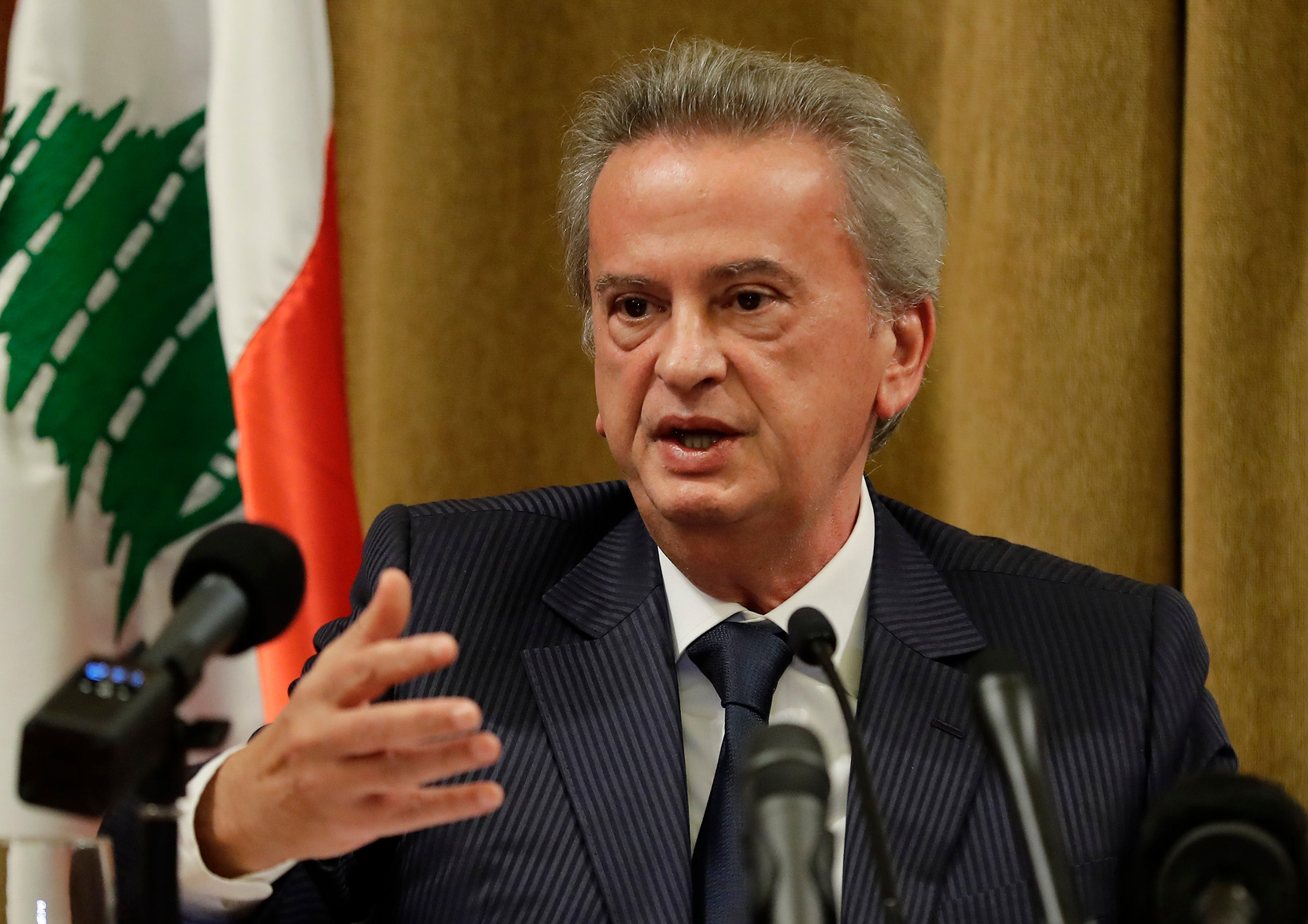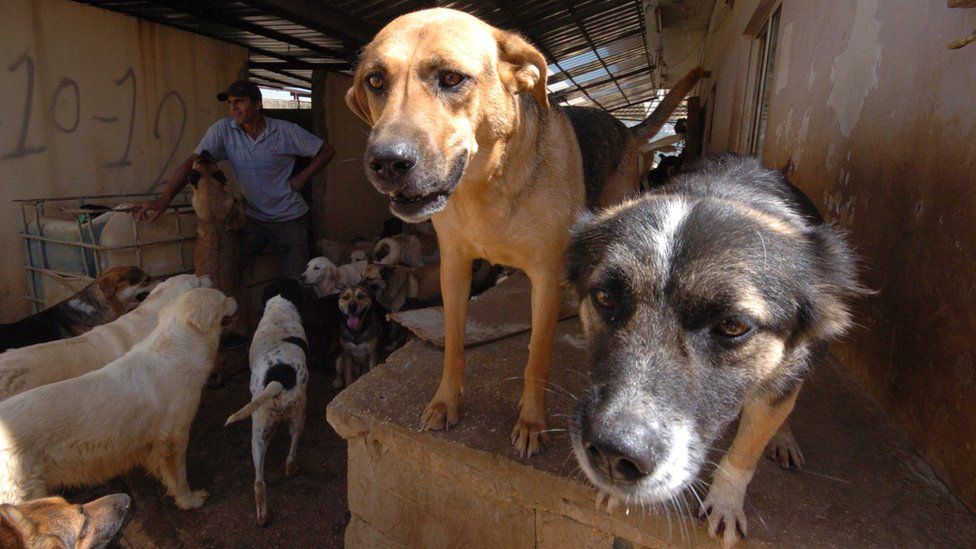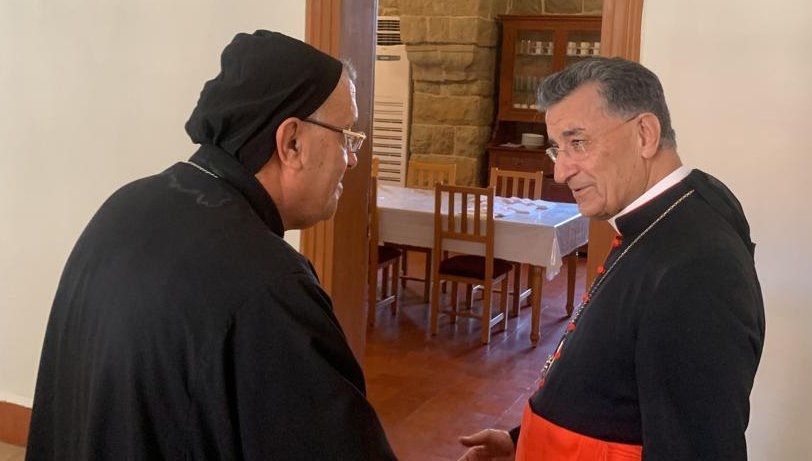by cathnews.com — The Maronite Eparchy of Australia has announced the head of the Maronite Church, Cardinal Bechara Boutros Rai, will visit …

by reuters -- Lebanon's longtime central bank governor Riad Salameh defended his record on Wednesday in a televised interview just days before he is set to leave office, denying he embezzled public funds and saying his policies benefited the economy. Salameh, whose 30-year tenure as governor has been stained by a deepening financial crisis and charges at home and abroad of embezzlement of public funds, said he would leave his post when his latest term ends on July 31. "I am going to turn a page of my life," Salameh, 72, told local broadcaster LBCI in an interview that appeared to take place in a showcase room at the bank. "I believe that during these 30 years, there were 27 of them when the Central Bank contributed with its monetary policies to establishing economic stability and development," he said, apparently referring to the years preceding the meltdown.
His comments came amid a tug-of-war among top politicians over what to do once he leaves office, with a cabinet session set for tomorrow to discuss a possible successor. Since the economy began to unravel in 2019, the Lebanese pound has lost 98 percent of its value in the parallel market and most of the population has been locked out of their bank savings. The collapse followed decades of corruption and profligate spending by ruling politicians, which many Lebanese say Salameh helped facilitate. Some analysts have described his policy to lend to the government as a "Ponzi scheme." Salameh said on Wednesday he was being pinned as a "scapegoat" and that his more recent interventions in the money market had helped keep the pound from deteriorating further. "A lot of people were upset that this bank stayed steadfast, and that this bank on its own, because there was no government during this whole crisis, ran the economy," he said. "We wouldn't have been able to survive for three or four years... so how is this a Ponzi scheme?"

By Najia Houssari - arabnews.com -- BEIRUT: There was anger and grief in the town of Chekka in northern Lebanon on Monday after several dogs were poisoned. One resident, Maurice Boulos, aged 52, was walking his eight-year-old dog Wind one evening when the animal ate some chicken laced with poison that had been left in the street. Wind was dead within half an hour. Boulos said a local vet confirmed the dog died of poisoning. Having discovered the cause, Boulos then rushed to prevent other dogs on the street eating the contaminated chicken. He said he was able to get two to the vet in time to save them, but that several other dogs died.
Police began an investigation after Boulos asked them to check cameras in the vicinity of where the dogs were poisoned. An animal rights activist told Arab News perpetrators of dog poisoning use lannate, which is a banned substance in Lebanon, but readily available. The development comes as authorities in Tripoli investigate the case of a stray dog that rescued an abandoned baby left to die in a trash bag. The dog was seen carrying the bag by a passerby who heard the newborn baby’s cries coming from inside. The bruised infant, who is believed to have only been a few hours old, was taken to hospital for treatment in Tripoli. The scene shook Lebanese public opinion and social media users have hailed the dog as a hero.

by Vanessa Boumelhem -- catholicweekly.com -- Some of my earliest memories are of Our Lady of Lebanon in Harris Park, where I would attend 9:30am English-language Mass with my family every Sunday, Fersan Al Adra (parish ministry for school aged children which translates to “Knights of Mary”) every Saturday, and visit for a quick prayer every morning before school, where staff and students were predominantly Maronite. Having grown up in this bubble of mine, stepping out of my Maronite world and into the real world was a stark change—one I hadn’t expected, despite all the warnings I received. Going into university, it took only days for me to realise just how much my Maronite identity had made me who I am, and how important it is to me. But what is Maronite identity? I argue that the answer is entirely subjective.
In Australia, I am only one of thousands of Maronites who have each had unique experiences making them into the people they are. It is difficult to define Maronite identity when it is something that runs deep, something our grandparents passed onto our parents—which has now been given to us and will continue to live on. Maronite identity is embedded into the core of each one of us, and is sometimes as simple as the actions we do almost absentmindedly. My Maronite identity is doing the Sign of the Cross before every meal and car ride, or before putting food in the oven. It is deliberately taking longer routes so I can pass by whichever Maronite church is on my way and say a quick prayer as I drive by. It is as simple as saying “esmesalib” (in the name of the Cross) every time I see lightning, or every time something startles me. It is the rosary hanging off the rear-view mirror in my car and the miraculous medal I wear every day. My Maronite identity is knowing that no challenge I face can’t be made easier by a visit to Our Lady of Lebanon, the church I grew up in, which has been a constant in my life from birth until now.
Khazen History


Historical Feature:
Churches and Monasteries of the Khazen family

St. Anthony of Padua Church in Ballouneh
Mar Abda Church in Bakaatit Kanaan
Saint Michael Church in Bkaatouta
Saint Therese Church in Qolayaat
Saint Simeon Stylites (مار سمعان العامودي) Church In Ajaltoun
Virgin Mary Church (سيدة المعونات) in Sheilé
Assumption of Mary Church in Ballouneh
1 - The sword of the Maronite Prince
2 - LES KHAZEN CONSULS DE FRANCE
3 - LES MARONITES & LES KHAZEN
4 - LES MAAN & LES KHAZEN
5 - ORIGINE DE LA FAMILLE
Population Movements to Keserwan - The Khazens and The Maans
ما جاء عن الثورة في المقاطعة الكسروانية
ثورة أهالي كسروان على المشايخ الخوازنة وأسبابها
Origins of the "Prince of Maronite" Title
Growing diversity: the Khazin sheiks and the clergy in the first decades of the 18th century
Historical Members:
Barbar Beik El Khazen [English]
Patriach Toubia Kaiss El Khazen(Biography & Life Part1 Part2) (Arabic)
Patriach Youssef Dargham El Khazen (Cont'd)
Cheikh Bishara Jafal El Khazen
Patriarch Youssef Raji El Khazen
The Martyrs Cheikh Philippe & Cheikh Farid El Khazen
Cheikh Nawfal El Khazen (Consul De France)
Cheikh Hossun El Khazen (Consul De France)
Cheikh Abou-Nawfal El Khazen (Consul De France)
Cheikh Francis Abee Nader & his son Yousef
Cheikh Abou-Kanso El Khazen (Consul De France)
Cheikh Abou Nader El Khazen
Cheikh Chafic El Khazen
Cheikh Keserwan El Khazen
Cheikh Serhal El Khazen [English]
Cheikh Rafiq El Khazen [English]
Cheikh Hanna El Khazen
Cheikha Arzi El Khazen
Marie El Khazen